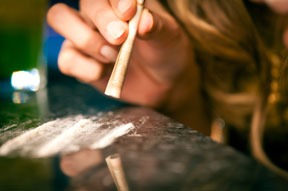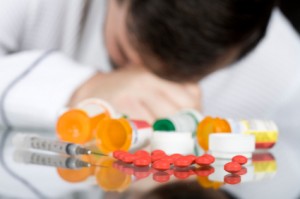Recognizing the Need for Stimulant Addiction Treatment

It can be very hard to stop using stimulants on your own. Addiction treatment centers help you learn how to live without them.
Stimulants are best known for their ability to increase concentration and boost a person’s energy level. These properties account for their appeal with students and athletes. Stimulants also work well for those wanting to lose weight. Unfortunately, these effects may only last for so long before negative symptoms start to develop.
Both prescription and illegal stimulants can be highly addictive when taken in excess amounts. As with any drug, some people may be more at risk of addiction than others. As stimulants can take a terrible toll on brain and body functions, the sooner a person recognizes the need for stimulant addiction treatment the better.
Stimulant Addictions
Stimulant drugs, such as cocaine and amphetamines, also go by the name “uppers” due to the euphoric rush they produce. Stimulant effects also speed up the body’s central nervous system so most every major process in the body speeds up accordingly. For the most part, these are short-term effects ranging anywhere from one to five hours.
Stimulant addictions develop as the brain and body become more dependent on the drug’s effects, according to the Semel Institute. Stimulant addiction treatment helps addicts break the body’s dependency on the drug. As addiction also produces a psychological dependence, stimulant addiction treatment helps recovering addicts learn to manage daily life without the “need” for the drug.
Signs of Stimulant Addiction
According to the National Institute on Drug Abuse, the ongoing secretion of dopamine and norepinephrine brain neurotransmitter chemicals accounts for the addictive effects of stimulants. By the time a person enters stimulant addiction treatment, brain neurotransmitter chemicals have become depleted. This condition results in the uncomfortable symptoms users experience once addiction takes hold.
Signs of Stimulant addiction include:
- Ongoing drug cravings
- Taking increasingly larger doses to experience the same desired effects
- Multiple failed attempts to stop using
- Complete loss of appetite
- Ongoing feelings of fatigue or “burn out”
- Needing stimulants to make it through the day
Stimulant addiction treatment helps recovering addicts overcome the body and brain’s physical and psychological dependence on the drug.
Risk Factors
Certain risk factors can greatly increase the likelihood of stimulant addiction. People expected to perform in high-pressure environments may easily gravitate towards stimulants as a way to enhance their performance. This can be seen in the high rate of stimulant abuse among college students and athletes.
Other known risk factors include:
- Genetic predisposition
- Psychological disorders
- A family history of mental illness
Stimulant addiction treatment helps recovering addicts develop the types of tools and coping skills needed to function well without the need for stimulants.
Considerations
According to the National Alliance on Mental Illness, people who suffer from conditions involving depression and anxiety may be at an exceptionally high risk of becoming addicted to stimulants. In effect, a person may turn to stimulants as a means for self-medicating depression and/or anxiety symptoms.
Under these conditions, stimulant addiction treatment may be the only way to break the addiction. In addition to helping addicts recover from addiction, stimulant addiction treatment provides needed help for any existing or pre-existing psychological disorders a person may have.



